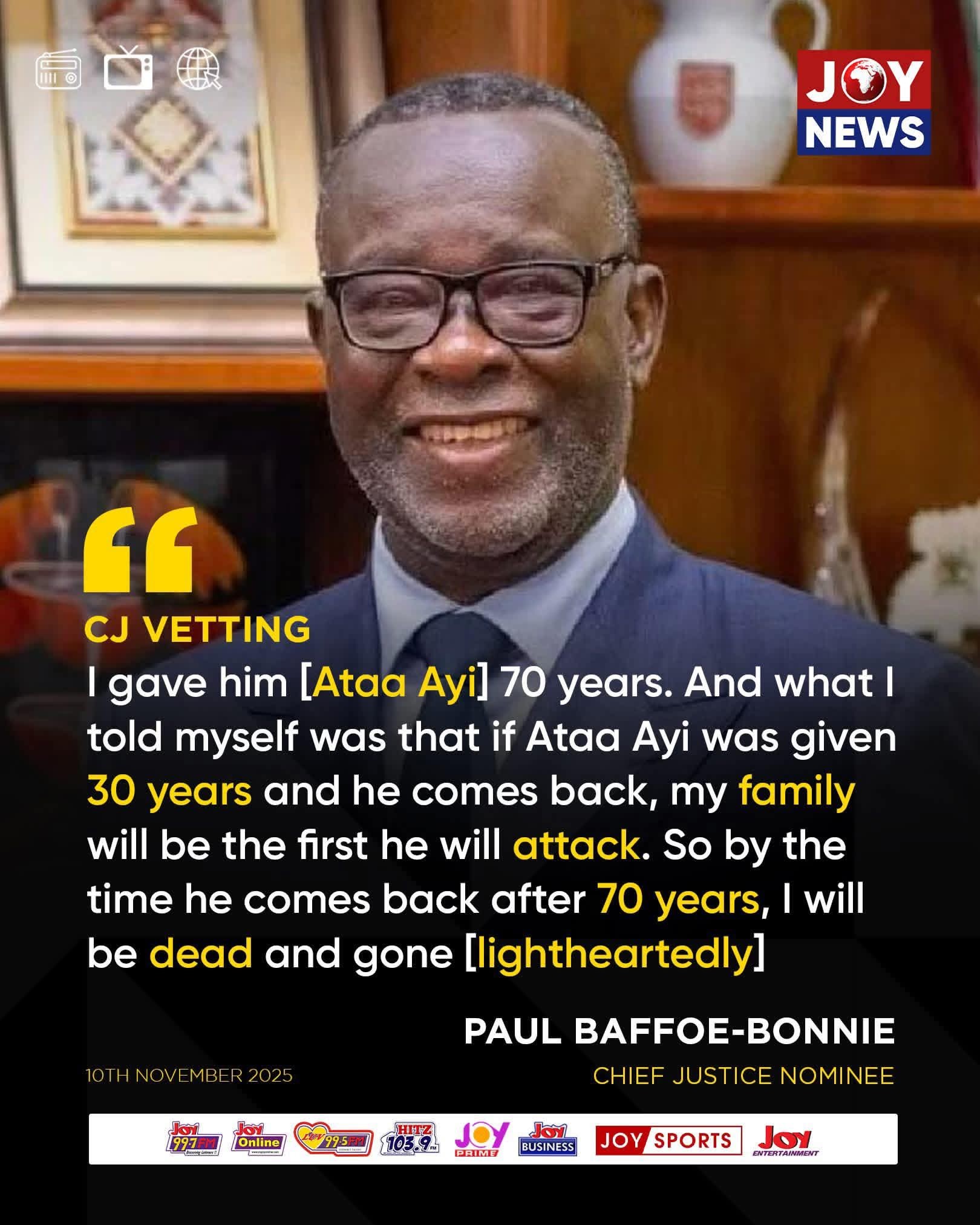Why Baffoe-Bonnie’s Psychology Disqualifies Him as Chief Justice
By J. A. Sarbah
The controversy surrounding Justice Baffoe-Bonnie’s admission – that he sentenced a man to 70 years to ensure the convict would outlive him – is not a minor gaffe. It is a devastating X-ray of a judicial psychology that is fundamentally unfit for the bench, let alone the office of Chief Justice.
A judge’s core duty is to be an impartial arbiter, administering justice “without fear or favour.” Sentencing must be a rigorous exercise bound by law, guided by the objectives of retribution, deterrence, and rehabilitation for the good of society.
Justice Baffoe-Bonnie’s stated reasoning shatters this principle. By connecting the sentence to his own personal safety and lifespan, he shifted the motive from public justice to private self-preservation. The law, in that moment, became his personal shield.
This reveals a dangerous conflict of interest at the level of judicial psychology. If a judge admits that fear for his family influences his rulings in a criminal case, how can he be trusted to be impartial in a politically sensitive case where the government – with all its power and capacity for intimidation – is a party? The answer is, he cannot.
The statement, even if offered lightly, exposes an emotional anchor that corrupts objectivity. For a Chief Justice, who must set the ethical tone for the entire judiciary, this is catastrophic. It signals to every judge that personal biases can be entertained. It tells every citizen that the law is not a blind standard, but a tool for the judge’s own security.
The issue is not the length of the sentence, but the confessed reasoning. A Chief Justice must represent the absolute separation of the personal self from the judicial role. Paul Baffoe-Bonnie has demonstrated, by his own admission, that he fails this most basic test.
J. A. Sarbah


